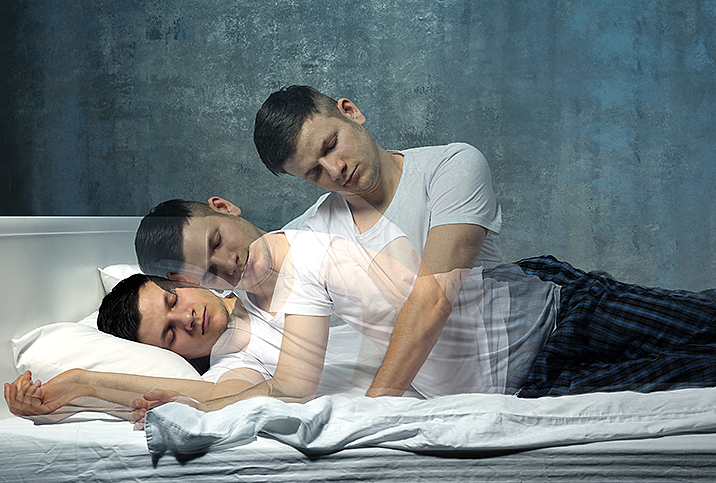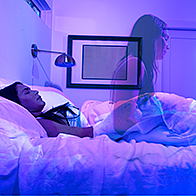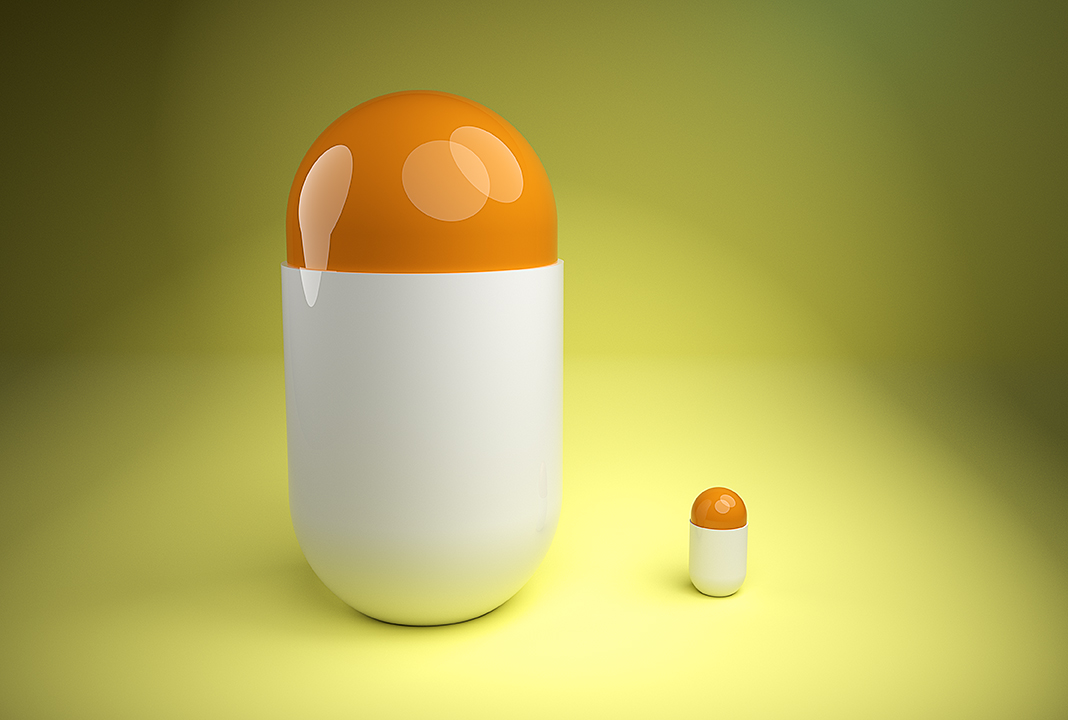Is ADHD Medication Like Concerta the Cause of Your Sleep Paralysis?

The term sleep paralysis was first used in the 1920s by American neurologist Samuel Alexander Kinnier Wilson in his influential work "The Narcolepsies," describing the nature of being conscious yet unable to move your body.
Previously, sleep paralysis was thought to be caused by demons, witches or supernatural creatures due to sensations of being dragged out of bed, difficulty breathing and hallucinations.
Wilson refuted claims of the supernatural, describing a condition called parasomnia as falling asleep and waking up while transitioning into or out of REM sleep—resulting in sleep paralysis.
What causes sleep paralysis?
Although the cause of sleep paralysis is unclear, the phenomenon could be the result of other sleep disorders, such as narcolepsy and insomnia, disrupted sleep patterns, mental health disorders or the possible side effects of various medications.
In people with attention deficit hyperactivity disorder (ADHD) and those who take medication prescribed for the condition, sleep issues are reported in an estimated 25 to 50 percent of individuals, affecting mood, attention and behavior.
Stimulant and nonstimulant medications alike are associated with worse sleep efficiency, shorter sleep duration and delayed sleep phase syndrome.
In most cases, sleep paralysis does not affect sleep or overall health, but if you're experiencing difficulties, talk to a doctor or a sleep specialist.
What are the symptoms of sleep paralysis?
Sleep paralysis is an REM parasomnia resulting in the inability to move your body when falling asleep and waking up. Episodes of sleep paralysis involve the inability to speak, but individuals experiencing an episode can breathe and remain conscious.
In addition to immobility, individuals may experience hallucinations, including hearing, seeing or feeling imagined events.
It is generally thought that between 7 and 8 percent of people may experience sleep paralysis at some point in their lifetime.
This may present in various ways, such as feelings of fear and anxiety, as well as symptoms of chest pains, shortness of breath, heart palpitations, feeling of choking, sweating, trembling, light-headedness and/or nausea.
It is generally thought that between 7 and 8 percent of people may experience sleep paralysis at some point in their lifetime.
Factors linked to sleep paralysis include lack of sleep, changes in sleep schedule, mental disorders such as bipolar disorder, anxiety disorders, other sleep issues such as narcolepsy, substance use disorders, or the use of certain medications, such as those for ADHD.
Although sleep paralysis is similar in people with or without ADHD, the cause of sleep paralysis in individuals with ADHD may be different.
Christina Crowe, an ADHD therapist and coach based in Ontario, Canada, described sleep paralysis in individuals with the disorder.
"Sleep paralysis is a subcategory of insomnia, which people with ADHD can certainly have, but isn't necessary due to ADHD. It can co-occur with ADHD," Crowe said. "However, people who have experienced sleep paralysis do not necessarily have ADHD."
How is sleep paralysis different for people with ADHD?
Circadian rhythms determine sleep-wake cycles as part of the body's internal clock. With a properly aligned circadian rhythm, individuals experience consistent and restorative sleep.
However, an unsynchronized circadian rhythm affects the production of melatonin, a hormone that promotes sleep, potentially resulting in sleep issues.
The connection between ADHD and circadian rhythms is a result of behavioral and biological factors. Research indicates that individuals with ADHD have a stronger circadian preference and melatonin production delay.
As a result, deficits in impulsivity control affect sleep and lead to bedtime resistance and delayed sleep.
"Know any 'nighthawks'?" Crowe asked. "People with ADHD brains are on a slightly delayed circadian rhythm. When the sun goes down and it's dark, our brains generally know it's time to sleep. Instead, individuals with ADHD take longer to wake up and get going in the morning. As such, we know from research, ADHD is a 24-hour disorder."
According to Crowe, at least one study demonstrated that genetics which lead to insomnia, daytime sleepiness and snoring could predict ADHD in neurobiological functions in individuals.
"ADHD itself results from structural, functional and neurochemical differences in the brain, and there are about 35 different genes potentially associated with the expression of ADHD," Crowe stated.
"It's important to note that just because you might carry a gene does not mean you will express it. However, we do know that at least 80 percent of ADHD is genetically influenced," Crowe reminded.
In addition, ADHD stimulant and nonstimulant medications play a role in sleep. Clinical predictors of sleep problems include treatment, dose type and dosing schedule.
How does medication like Concerta play a role in sleep paralysis?
Disturbances in circadian rhythm are a common sleep issue associated with stimulant medications, and can result in insomnia and delayed sleep syndrome for adults and adolescents.
Common stimulant medications include methylphenidate (Ritalin, Concerta and other formulations) and amphetamine (Adderall, Vyvanse and other formulations).
In a 2012 Neurotherapeutics journal study, adults taking stimulant medications reported a later bedtime, more difficulty falling asleep, difficulty waking and more daytime sleepiness associated with ADHD medications.
In addition, increased doses and a shorter duration of stimulant exposure are associated with more frequent reports of insomnia and sleep paralysis.
Stimulant meds, such as Concerta or Ritalin, and nonstimulant medications alike are associated with worse sleep efficiency, shorter sleep duration and delayed sleep phase syndrome.
The use of methylphenidate indicated greater difficulty falling asleep when medication is wearing off. However, studies show children fall asleep more easily on a low dose of medication. Therefore, the relationship between sleep and ADHD medication is complex.
"ADHD is incredibly heterogeneous—meaning it affects everyone differently," Crowe stated. "Medication can improve sleep outcomes for people, and for others can interfere with sleep."
What are the treatment options for ADHD with sleep paralysis?
Alexis Galamay, an ADHD coach and pharmacist in Florida, pointed to different treatment options for individuals affected by sleep paralysis due to ADHD medication.
"A common treatment option for sleep paralysis is selective serotonin reuptake inhibitors (SSRIs), which are a better option in terms of side effect profile," Galamay stated. "SSRIs can also address any depression or anxiety symptoms, which are common co-occurring mental health conditions in people with ADHD."
It's essential to consult your doctor or sleep specialist before starting any new medication to determine what works best for you and the potential effects on sleep.
Stimulant medications used for ADHD often cause difficulty falling asleep; therefore, it is recommended to take them early in the morning and not too late in the afternoon. Ask your doctor also about "medication holidays" when you can take breaks from the stimulant.
"Sleep is always a major target," Crowe said. "I'd recommend a referral for a sleep study from a physician. Lots of medical conditions can present as sleep problems, so it would be important to have a solid medical practitioner do a differential diagnostic assessment. It's important to ensure nothing is missing or overlooked."




















